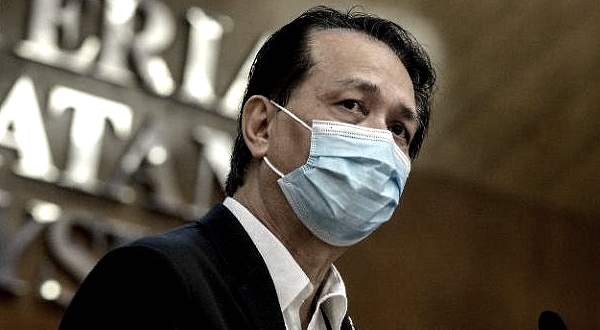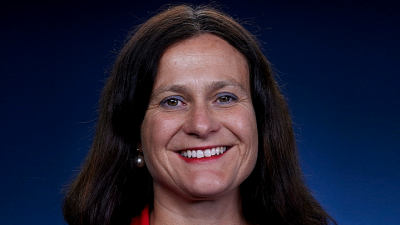Sin Chew Daily
We fail badly in the war against the coronavirus. As of January 31, we recorded 214,959 cumulative positive cases at 657 cases for every 100,000 people, the highest among Asean countries, 13th in Asia and 55th in the world.
We used to pride ourselves in our battle against the virus but are now completely overwhelmed!
Right then our finance minister Tengku Zafrul said in his FB post that IMF had projected Malaysia's GDP to grow by 7% this year, in line with the 6.5%-7.5% growth he had projected earlier on.
IMF also said Malaysia's growth rate would be the third highest in the world, after India and China.
Well, this projection does serve as a much needed morale booster at this gloomy moment but on the flipside, the virus is completely out of our control now, and it is inevitable that the vaccines are to arrive here late.
Very few economic sectors can be spared from the scourge of the virus, and there is no good reason for the economy to stage a powerful rebound this year.
IMF's optimistic projection has been established upon two conditions, that the country sees steady rise in domestic and foreign demands and that the nationwide vaccination program takes off smoothly in March..
Today, we don't seem to meet either of the two conditions above. International trade minister Azmin Ali said last weekend that our external trade this year would only expand marginally by 2.7%.
Each quarter IMF will adjust its projections for countries and it is anticipated that the result to be unveiled this April is going to be a disappointing one. Perhaps World Bank's 4% growth projection looks more reasonable.
To be honest, Tengku Zafrul knows very well what's happening, and while releasing this heartening piece of news, he has also urged Malaysians to strictly adhere to all the SOPs in hope of flattening the curve so that IMF's projection could turn out to be a reality.
Bear in mind that we will never enjoy enviable growth without having successfully defeated the virus.

The government is commanding all the resources that can be deployed to fight the virus; all decisions on MCO and SOPs are made by them while the distribution of medical resources and vaccine procurement are at their sole discretion, and we are all governed by them. Who then should be held accountable for our lackadaisical performance in handling the virus?
With things largely out of control and three consecutive days of over 5k new cases, the government and the people are beginning to point their fingers at each other.
Selangor MB Amirudin Shari accused private hospitals for late reporting causing a dramatic surge in the state's cases of late. It doesn't really matter now whether the late reporting will affect the accuracy of the state's case reporting. What we are really worried is that this may defer the reporting of new infection clusters, causing the situation to go out of control.
Association Of Private Hospitals Malaysia (APHM) president Dr Kuljit Singh refuted the MB's allegation, arguing that private hospitals never reported cases late.
And then health DG Noor Hisham blasted at the public for not appreciating the relaxed rules and for violating the SOPs, causing the virus to spread rapidly.
This accusation couldn't have come at a worse timing, as many who obediently abide by the SOPs feel he has not been fair to them.
The DG should have specified exactly which groups of people have flouted the rules instead of making a generalized statement in a bid to find excuse for his own lapse.
In the meantime, the prime minister's public health advisor Dr Jemilah Mahmood accused the West of monopolizing the vaccine supply market.
We feel that such finger-pointing will not work at all in mitigating the outbreak, as WHO director-general Tedros Adhanom Ghebreyesus has urged wealthy nations not to stockpile vaccines, thus depriving poor nations of the vaccines they can use.
We are not a poor nation by any measure. Our GDP was ranked 33rd in the world with US$376.6 billion in 2019. Our per capita GDP was US$10,460 at 57th, considered upper middle income group.
The poor nations that the WHO director-general has referred to are those in the lower middle and lower income groups. While Indonesia and the Philippines are poorer than us, they have acted much more positively than us in vaccine procurement.
Take a look at our tiny southern neighbor Singapore. They should complete their vaccination program for majority of citizens within half a year, but here in Malaysia, we don't purchase vaccines based on the overall virus containment strategy but rather the costing.
Khairy Jamaluddin said last month that Singapore could have bought overpriced vaccines. Where this is concerned, time is money, and we may lose big for trying to make a small saving!
Those in power should learn to admit their failure instead of putting the blame on the people. They should know that the rakyat are their bosses who can vote them out come the next general election.
When no penalty is being meted out to government leaders who do not put on masks, and when they make numerous U-turns on MCO and SOPs, and are far behind others in vaccine procurement, we as the voters indeed have the right to question them.
We all hope that the nation will stand united against such a powerful enemy so that we can lead our normal lives once again. As the media, we will continue to carry inspiring stories to lift the spirits of our readers, but as the fourth estate, painting an unrealistically rosy picture is never an option when things don't really look good at all.
ADVERTISEMENT
ADVERTISEMENT


































